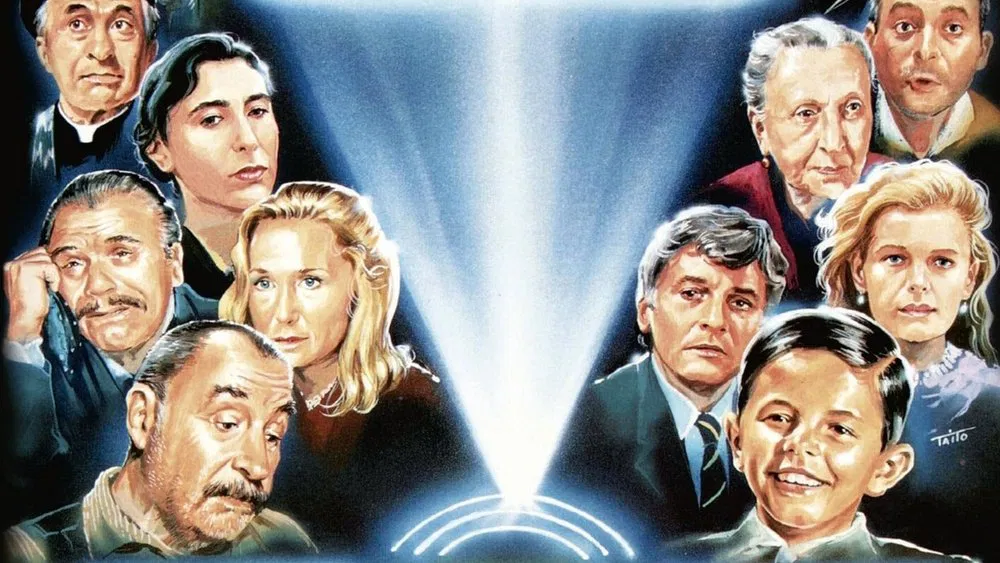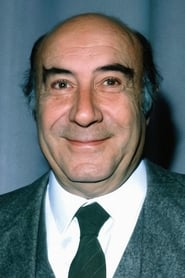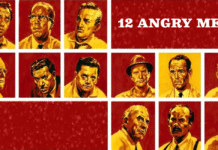Cinema Paradiso (1988): Nostalgia, Reels and Existential Dread
There are films that entertain. There are films that move you. And then there’s Cinema Paradiso—a film that gently caresses your face with one hand and backhands your soul with the other. Directed by Giuseppe Tornatore, this 1988 Italian drama is a cinematic love letter to the magic of movies and the emotional meat grinder that is growing up.
It’s a story about childhood, loss, love and that very specific brand of melancholy that makes you question every life decision while softly weeping into a glass of red wine. It also has a glorious montage of censored kisses, which is basically a greatest hits album for romantics with parental issues.
Table of Contents

Plot Summary: Lights, Camera, Cry
Cinema Paradiso follows the life of Salvatore Di Vita, a successful film director who returns to his tiny Sicilian village after learning that Alfredo, the projectionist who mentored him as a child has died. What unfolds is a series of flashbacks so rich in feeling, you’ll start to believe your own childhood was scripted by Fellini.
As a young boy nicknamed Toto, Salvatore discovers his obsession with film at the local cinema, the “Paradiso.” It’s a dusty, smoke-filled theatre where movies are chopped to pieces by the local priest, who views kissing scenes the same way one might regard Satan’s resume.
Alfredo (played by the magnificent Philippe Noiret) becomes Toto’s surrogate father, film teacher and philosophical life coach. Their relationship is the emotional backbone of the movie—tender, hilarious and often emotionally brutal.
Eventually, Salvatore leaves the village, swears never to return and becomes a big-shot director. In other words, he sells his soul for success, like most of us wish we had the chance to do.
Tornatore’s Direction: Subtle as a Brick, but Beautiful
Giuseppe Tornatore isn’t here for your subtlety. He wants your heart torn open and served on a rustic plate next to a Chianti. The entire film is drenched in sweeping orchestral music (thanks to the god-tier Ennio Morricone) and warm, golden visuals that make you want to move to Italy, buy a Vespa and have a crisis under an olive tree.
But beneath the romanticism, there’s bite. This isn’t just a story about movies, it’s a story about how time chews up your dreams and spits them back in your face. It’s about the brutality of nostalgia, how the past always seems better in hindsight, and how returning home can feel like trespassing on someone else’s memories.
Tornatore captures all this with the precision of a surgeon and the emotional weight of a sledgehammer.
Toto & Alfredo: The Bromance to End All Bromances
At the centre of the film is the relationship between Toto and Alfredo. Their bond is one of the most emotionally devastating mentor-student dynamics in cinema.
- Toto (Salvatore Cascio as a child) is all wide-eyed innocence, curious rebellion, and that overwhelming desire to escape the gravity well of small-town life.
- Alfredo is the weary cynic, equal parts warm and gruff, who dispenses life advice like a grizzled bartender in a Western.
He tells Toto to leave. To never come back. Not because he doesn’t love him, but because he does. It’s the emotional equivalent of being hugged and punched at the same time.
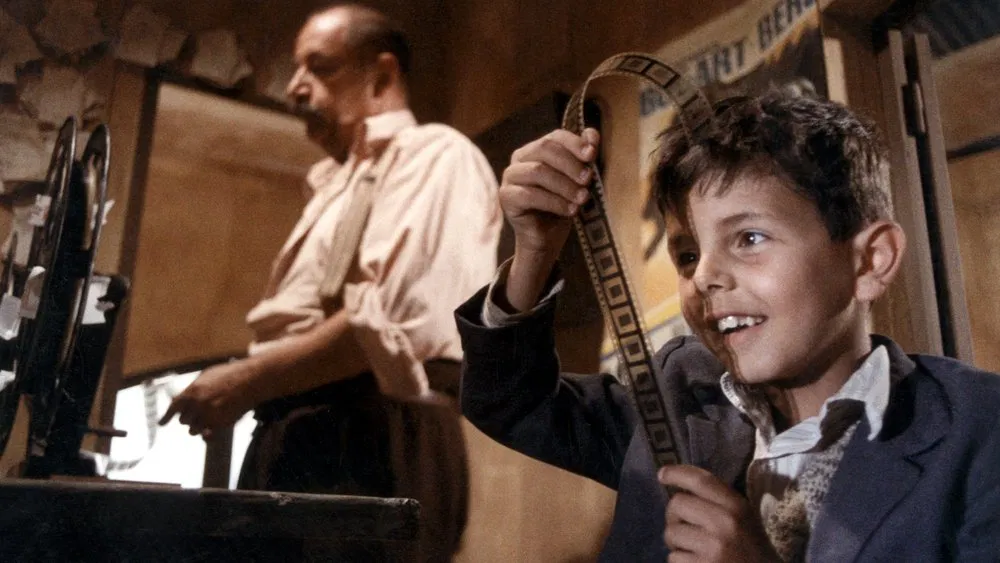
The Cinema Itself: Paradise Found and Lost
The Paradiso cinema is more than a setting, it’s a character. It’s the church, the school, the town square and the therapist’s office rolled into one. It represents everything pure about youth and community and like all good things, it gets bulldozed in the name of progress.
Spoiler alert: In the final act, the theatre is destroyed. Demolished. Erased like an inconvenient memory. Watching it fall is like watching your childhood home be replaced by a parking garage. Which, incidentally, is exactly what happens.
It’s a bitter pill, but it’s wrapped in such stunning cinematography and emotional heft, you’ll swallow it willingly-while sobbing.
The Final Montage: Pure Weaponised Emotion
Let’s talk about that ending. The final scene of Cinema Paradiso is basically emotional blackmail. Salvatore watches a reel Alfredo left for him—made up of all the censored kissing scenes that had been cut from films over the years.
It’s a montage of passion, affection and connection that never saw the light of day… until now. It’s beautiful. It’s tragic. It’s cinema.
And it will wreck you. Fully. No survivors. Watching it feels like someone excavated your emotional core with a rusty spoon and whispered “remember when love meant something?” into the gaping hole.
Themes: Nostalgia Is a Liar, But a Beautiful One
Beneath its warm, sentimental glow, Cinema Paradiso is a deeply melancholic film. It tackles:
- The tyranny of nostalgia – The past always looks better because we edit out the boring and painful bits.
- The pain of leaving – Sometimes you have to abandon everything you love to become the person you want to be.
- The loss of communal experiences – The Paradiso isn’t just a cinema, it’s the soul of the village. When it dies, so does a way of life.
And yes, all of this is delivered with extreme emotional violence dressed up in poetic melancholy.
Legacy: Why Film Snobs Still Cry About It
Cinema Paradiso won the Academy Award for Best Foreign Language Film in 1990 and has lived on in every film studies syllabus and “Top 100 Movies” list since. It’s the cinematic equivalent of an old photograph that makes you ugly-cry at 2 a.m.
Critics call it a masterpiece. Filmmakers worship it. Your pretentious friend with the Criterion subscription quotes it during dinner. And rightly so. This is a film that remembers what cinema used to mean before everything was turned into a franchise with a McDonald’s toy tie-in.
Recommended If You Like:
- Crying in foreign languages
- Gorgeous Italian towns you can never afford to visit
- Films about films
- Ennio Morricone’s music assaulting your feelings
- That feeling when you realise childhood is a scam
Final Thoughts: 5 Kisses Censored by the Church out of 5
Cinema Paradiso is a devastatingly beautiful film disguised as a heartwarming one. It pretends to be soft and nostalgic, then pulls the rug out from under you and says, “Surprise! Life is pain!”
But it’s honest pain. Poetic pain. The kind that makes you want to call your mum and rewatch old home movies while yelling at your cynical adult self.
In short, it’s a masterpiece. But don’t say I didn’t warn you about the emotional hangover.

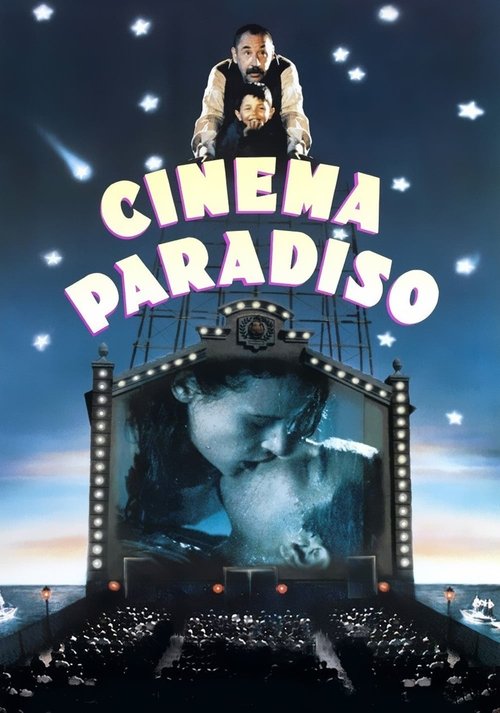
Cinema Paradiso
Alfredo
Salvatore 'Totò' Di Vita (adult)
Salvatore 'Totò' Di Vita (teen)
Salvatore 'Totò' Di Vita (child)
Elena Mendola (teen) / Elena's daughter (in Director's cut)
Maria Di Vita (young)
Maria Di Vita (aged)
Spaccafico



